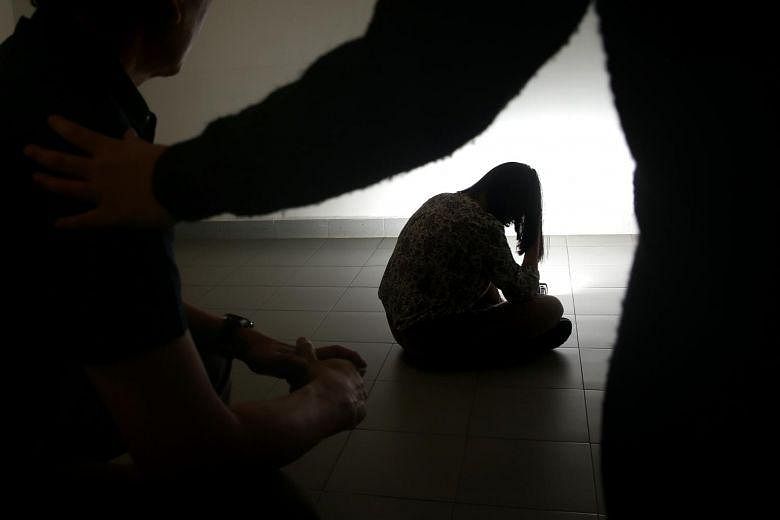SINGAPORE - More than 1,000 cases of child abuse were investigated last year, with a spike in the number of physical abuse cases.
The Ministry of Social and Family Development (MSF) investigated 1,088 child abuse cases in 2019, a 6 per cent decrease compared with 1,163 in 2018. It is the second highest number of cases in the last 10 years.
Physical abuse cases rose from 584 to 660, the highest in the past decade.
Sexual abuse cases dipped from 248 to 210, while the number of neglect cases investigated dropped from 331 to 218.
The total number of enquiries received by the ministry's Child Protective Service (CPS) was at its highest in the last five years at 3,840.
The ministry said that since 2015, it had introduced more rigorous screening tools and training for professionals, sharpening their ability to pick up safety concerns for a child and seek the appropriate intervention.
The interventions include supporting the children and families with community-based help such as Family Service Centres or Child Protection Specialist Centres, or referring serious cases of harm to CPS.
Ms Lena Teo, deputy director of therapy and mental wellness services at Children-at-Risk Empowerment Association, said that the tools have helped in identifying abuse cases.
She cited one case where they used trauma-focused cognitive behavioural therapy to uncover past sexual abuse in a 15-year-old.
The girl had been referred to them as she had suicidal thoughts. She had been sexually abused by her grandfather, who had since died.
"Some of these cases, they are deeply buried. The tools we have now help us identify and surface such abuse," said Ms Teo.
Senior social worker at Big Love Child Protection Specialist Centre Mok Xue Ting said that one of the key reasons for the higher overall numbers would be that public education has been stepped up, resulting in better detection of signs of abuse and allowing for earlier intervention.
There is more training provided by the MSF and agencies like Big Love to professionals in different fields, from childcare and school teachers to hospital staff.
Outreach at schools has also helped children to better identify symptoms of abuse and seek support for themselves.
"The numbers for physical abuse are usually the highest because it is the most visible. Even if the child doesn't share, people might be able to observe the injuries and report it," said Ms Mok. "But for things like sexual abuse, if the child doesn't disclose, it's harder to know it has happened unless the person is trained to watch out for the signs of impact," she added.
Ms Mok said that despite the increased outreach and awareness, there is more to be done.
"There could be more consistent training of professionals to identify child abuse early," she said.
Providing more resources to the public could also help prevent abuse.
Someone facing difficulty with parenting can seek help early before it escalates to violence, she said. "There is also a need for some mindset shift towards receiving such support."
Ms Teo warned that with the current coronavirus situation putting families in close quarters and stressful situations, cases of child abuse could be higher this year.
"We are already hearing more of such cases and seeing it (at our centre). It's a combination of many factors, including the economic situation and the circuit breaker measures," said Ms Teo.
The number of children in foster care, including those removed from abusive family environments, has risen steadily over the years to 545 in 2019, 10 more than the year before.
There were 530 foster families, up from 498 previously.
This comes as the Government has continued to take steps to encourage more people to help foster vulnerable children.
Last year, the Muhammadiyah Association was appointed as the fifth agency to expand foster care here.
The Children and Young Persons (Amendment) Bill passed in Parliament last September also accords childcare leave benefits to foster parents.
The number of child welfare cases in residential care - that is, children and young persons homes - dipped last year to 587, in comparison to 631 the year before.
There were also 59 children in conflict with the law who were in residential care.
Singapore has 21 such residential homes providing care and protection for vulnerable children and young persons who have been abused, neglected or abandoned, as well as at-risk youths beyond parental control or who have run-ins with the law.


